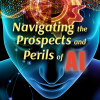Business Transformation Requires Transformational Leaders
Leadership and teaming skills are front and center in times of rapid change. Meet today’s constant disruption head on with expert guidance in leadership, business strategy, transformation, and innovation. Whether the disruption du jour is a digitally-driven upending of traditional business models, the pandemic-driven end to business as usual, or the change-driven challenge of staffing that meets your transformation plans — you’ll be prepared with cutting edge techniques and expert knowledge that enable strategic leadership.
Subscribe to Arthur D. Little's Culture & Leadership Newsletter
Insight
Flow psychology research reminds us that work is our best chance for a peak experience since it is the best place for us to deeply use our best skills, be challenged, and learn. But motivation is composed of many elements — short- and long-term goals, personal and contextual reasons, essential and hierarchical levels — so finding ways to boost engagement and motivation is a huge, ongoing issue with several dimensions (hence, it’s a complex adaptive system).






















